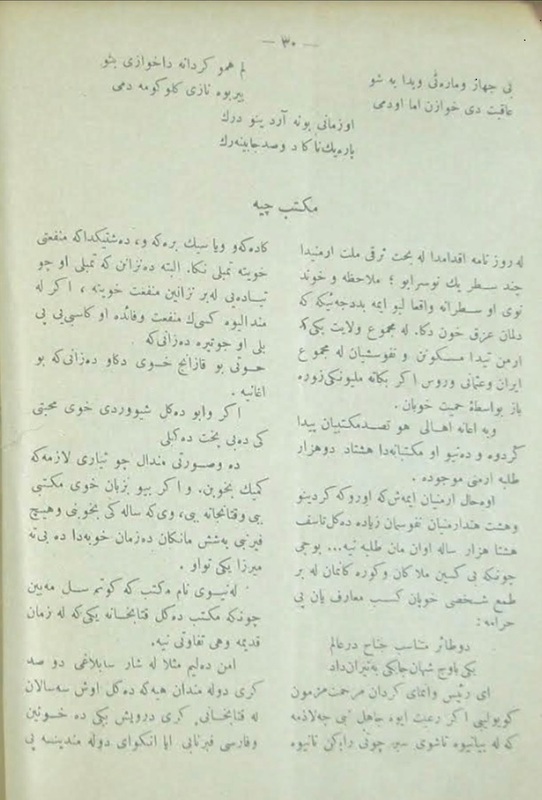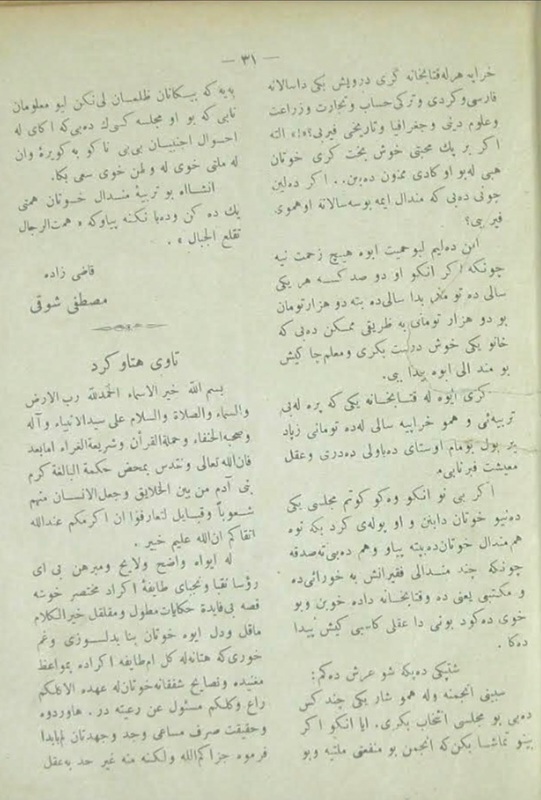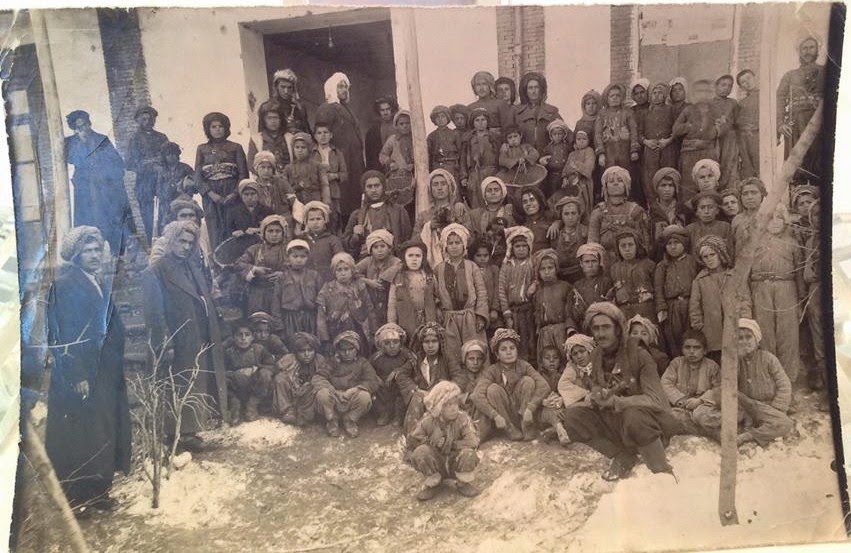In this letter, Qazizadeh unveils several things. First, he compares the two nations, Kurds and Armenians. He discusses the differences in the population of Armenians and Kurds and finally presents the situation of education and schools among them. He then explains why Kurds, who have many times the population, should deprive their children of schools and education in their own language instead of other languages. What is interesting is; Dr. Qazizadeh's wish has not been fulfilled now, after nearly 110 years, and the people of Mahabad, whom he called out for, and the people of the East part of Kurdistan in general, are still deprived of this right.
What Qazizadeh emphasized was the efforts of the Armenians themselves to organize and build schools in their own language. According to his statistics, 80000 Armenian students studied in their own language. According to Dr. Qazizadeh, if the Kurdish population had been eight times that of Armenians, 640000 Kurdish students would have been taught in their own language.
The reason for the failure of this dream, on the one hand, was the opponents of the Kurdish people, on the other hand, there were internal reasons and Dr. Shawqi identifies this internal reason as follows: “… why can’t we have an educational system? Because we don’t have any support from anyone and the Mullah and other nobles claim that gaining knowledge is Haram in order to keep people illiterate so that no one would think or speak against them.” On the one hand, he blames the Kurdish isolation in the world, that is, there are no external factors and international and regional support for the Kurds, as there is for the Armenians because of their religion. More importantly, a group of Kurds whose interests do not agree with new education and science and do not get benefit from it. According to Qazizadeh, they are our mullahs and elders.
It is clear why the mullahs opposed the new education for whatever reason. They considered themselves to have a discourse that was as much a cognitive-religious discourse as it was an economic resource. The rise of any rival could both damage the position of their cognitive discourse and weaken their financial resources. They were from the ruling classes of society, and if new science had produced its own scientists, they would have lost that position. Therefore, it is both heard and written that the mullahs considered new science and what Dr. Shawqi calls knowledge to be the science of Satan and were an important obstacle to the development of new science and schools.
However, this situation has had its obstacles even among the Persians in Iran and it is unnecessary to mention them here.
But whom do you think Dr. Qazizadeh means when he talks about our elders? Here, too, we can refer to both the nobles, who were the most powerful classes in the social system at the time, as well as the rest of the urban wealthy.

The author later expresses his intention more clearly and states that he means the Kurdish chiefs and nobles! Those who have vassals and whose interests are protected in the system of masters and subjects. This article tries to say that the educated vassals who are familiar with the new knowledge do not accept their problems and rules and they know that the ignorant vassals will do anything for them.
Here the author argues that this understanding of the nobles is also wrong. The educated and knowledgeable vassals will be better aware of their agriculture and get more profits and better products for themselves and their masters because educated vassals work more loyal and behave better on their lands than uneducated vassals.
Another important point in the article is that the author wants to encourage the ruling class to agree and welcome this idea. Therefore, if he criticizes, he suggests solutions and dispels their fears. When he says don't give up in the name of Maktab (old schools) because there is no such difference between the modern schools and the old schools, although he knows that the two systems are fundamentally different, he has to use that language to convince them.
The solution he suggests is that the rich people of the city should teach their children different subjects such as language, mathematics, business, geography, history, etc. and to do this they should rely on themselves financially and each should pay 10 Tomans to start the school and the teachers' salary and the building's rent fee can be paid.
The same article contains another important point; Dr. Qazizadeh knows that in the new changes, Iranian affairs will be partly through the parliament, so he writes to the nobles of the time; some people must represent the Kurds in the councils to negotiate with foreigners and to prevent the people from being oppressed. Obviously, those who represent the Kurds must be expert and smart and such people must emerge from schools, not from the old education system. In general, the proposals, criticisms, and proposals of education with the new system were the core of Dr. Mustafa Shawqi Qazizadeh's broadcasts, which have a special importance in the history of Kurdish education.









